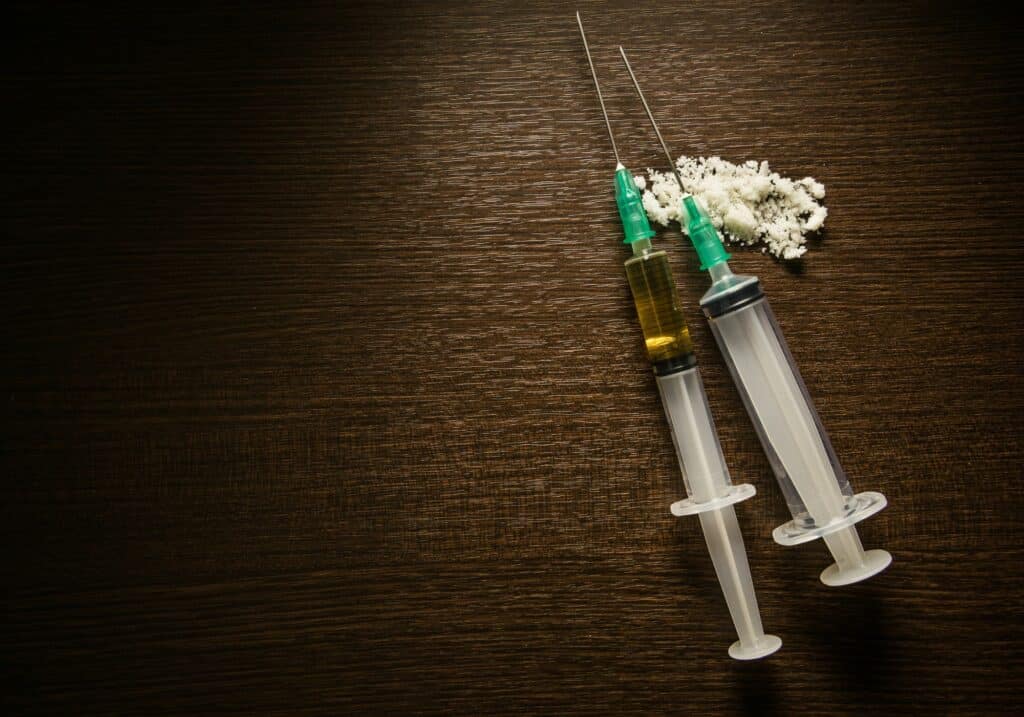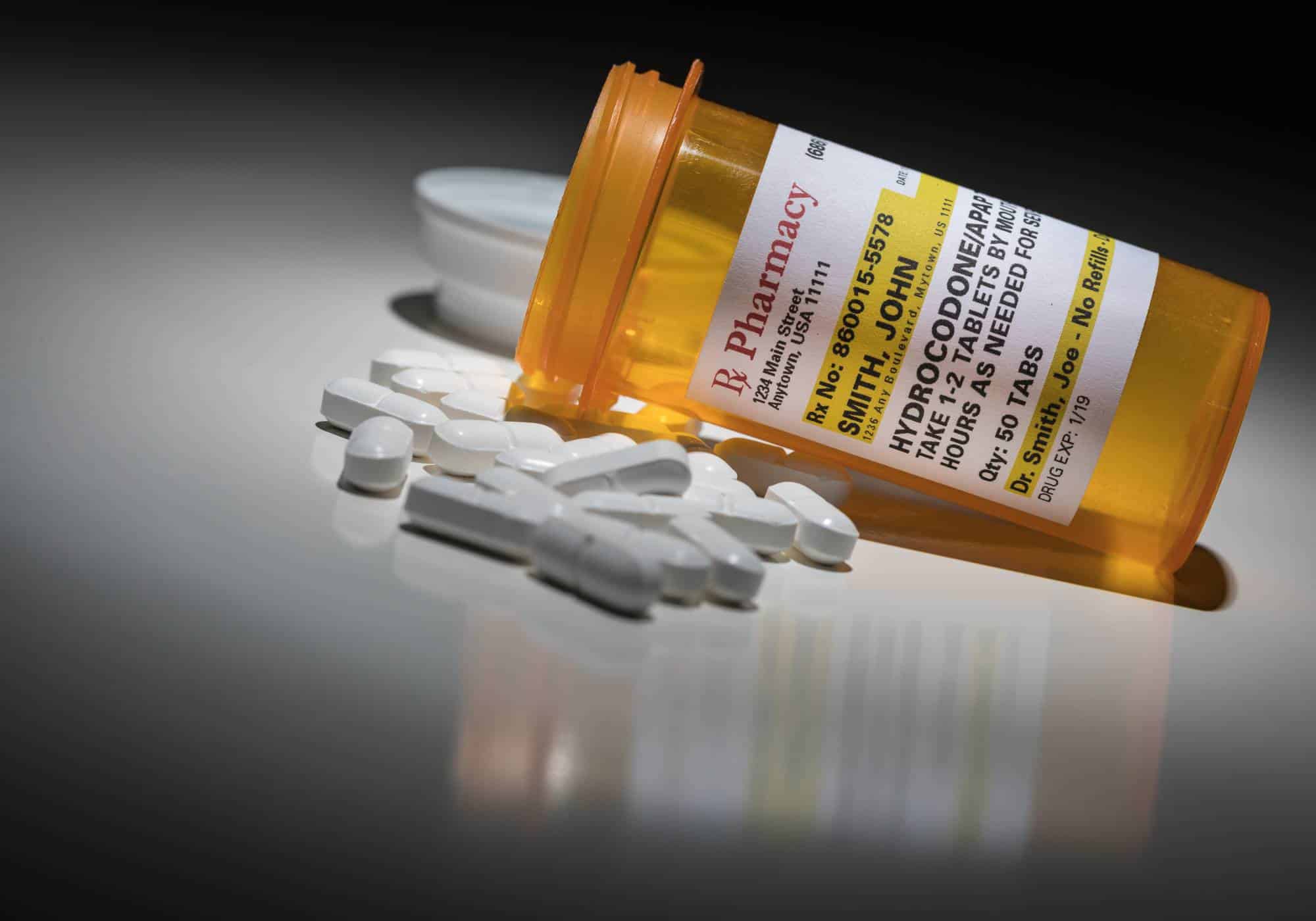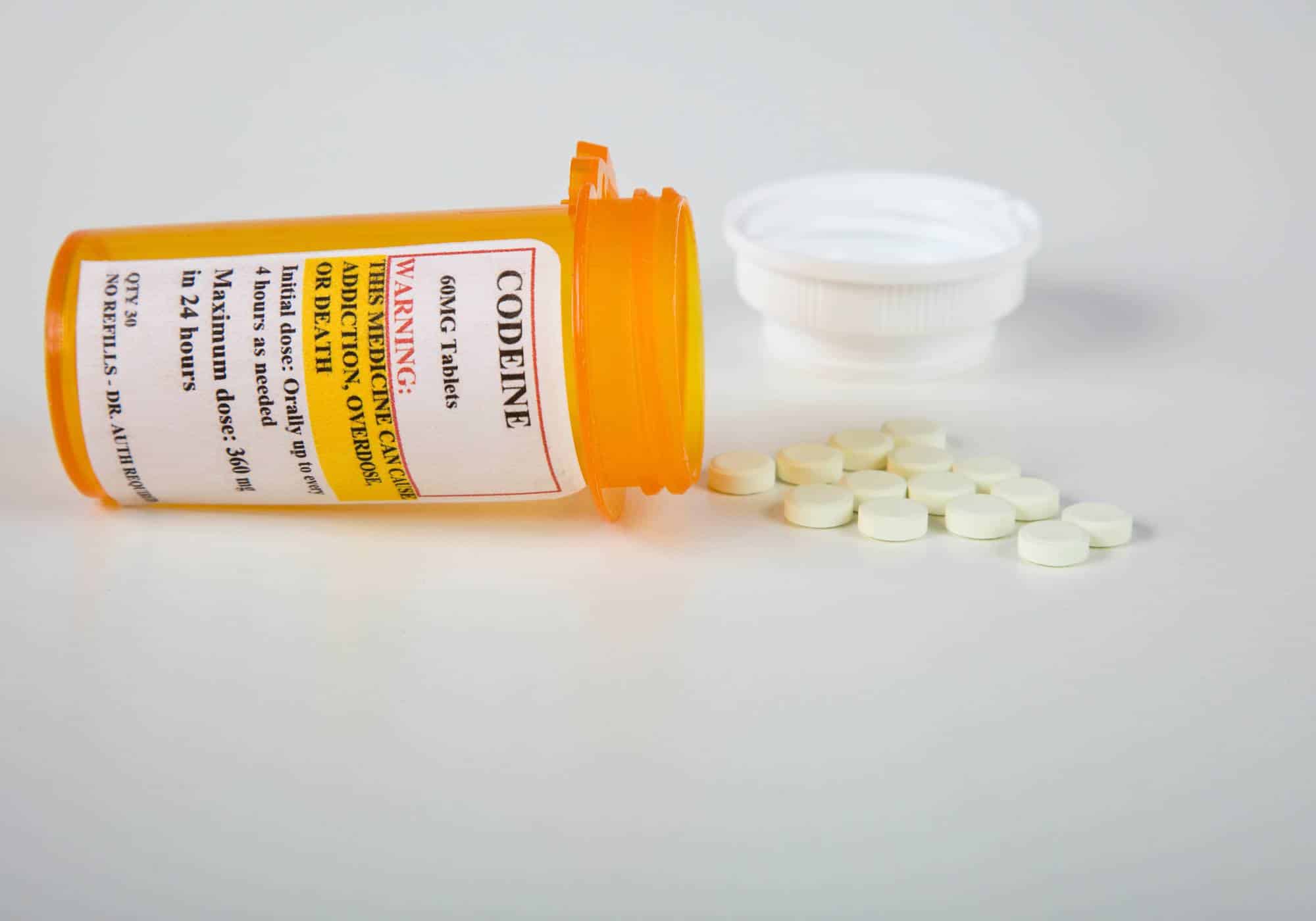The grip of heroin is relentless. In 2021, a staggering number of Americans dabbled with this perilous drug, and the aftermath revealed a vast majority struggling to escape its clutches. With each passing year, the dark shadow of heroin stretches further, ensnaring countless individuals and affecting not just their health but also their emotional and social well-being.
Yet, amidst this bleak landscape, there is a glimmer of hope. At Hope Harbor Wellness, we believe in second chances, in new beginnings. Our dedicated team in Atlanta, GA, stands firmly against the tide of heroin addiction, extending a helping hand to those eager to reclaim their lives. Our holistic approach to treatment combines the best of medical care, counseling, and therapeutic intervention, all nestled within a caring and empathetic environment.
Understanding the depths of heroin addiction isn’t easy, but recognizing the signs and seeking timely help can make all the difference. As you explore further, you’ll delve deeper into the nuances of heroin dependence, learn how to identify its impact and discover the transformative heroin addiction treatment that Hope Harbor Wellness proudly offers. Remember, every journey begins with a single step; let us guide yours toward a brighter, heroin-free future.
What is Heroin?
Heroin: it’s very name conjures up images of dark alleys and shattered lives. But what really is this notorious substance? Let’s break it down.
Heroin is an exceptionally potent opioid, known to produce overwhelming sensations of euphoria in its users. Derived from the morphine found in certain poppy plants, this depressant has carved its path from remote regions in Asia and Latin America straight into the heart of American communities. Commonly disguised under street names like H, horse, smack, or the ominous-sounding hell dust, heroin often appears as a white or brown powder. But there’s a catch. It’s frequently mixed, or “cut,” with seemingly benign substances like baby powder or cornstarch. This practice not only dilutes its purity but also increases the dangers associated with its consumption. Beyond this powdered form, there’s also a stickier, darker variant known as black tar heroin.
Whether snorted, smoked, or injected, once heroin enters the system, it swiftly attaches to the brain’s opioid receptors. This results in a dual sensation: a numbing of pain and an eruption of pleasure. The euphoria can be so overpowering that it can lead individuals down a rabbit hole of chasing that initial high repeatedly. While the euphoric “rush” can be intensely gratifying, it’s also a treacherous trap. The overwhelming flood of dopamine, which bathes the brain’s reward centers, can quickly spark a cycle of dependence.
The United States has firmly placed heroin under the Schedule I classification. This means that not only does it lack any recognized medical benefits, but it also poses a serious threat of abuse and dependency. But there’s another peril lurking. Purchasing heroin off the streets is akin to playing Russian roulette. Its purity is unpredictable, and it could be laced with anything from harmful toxins to lethal pesticides. This unpredictability amplifies the risks and makes every dose a potential game of chance.
Here at Hope Harbor Wellness, we aim to equip you with knowledge and understanding about substances like heroin, believing that informed choices are always the first step towards a healthier life. We offer evidenced-based heroin addiction treatment in Atlanta, GA.
How Addictive is Heroin?
Heroin, an opioid, is highly addictive due to its powerful impact on the brain’s reward system. This is evidenced by the staggering number of heroin use disorders in the U.S. – over 1 million adults as per the 2021 National Survey on Drug Use and Health.
When heroin is consumed, it significantly alters the nucleus accumbens – the part of the brain responsible for reward processing. It triggers an increase in dopamine production, a neurotransmitter typically released during survival-related activities like eating or pain relief.
As heroin use continues, the brain starts associating the drug with pleasure, largely due to the dopamine release in its reward system. Eventually, regular heroin use may become necessary for normal functioning and avoiding withdrawal symptoms.
Indicators of a developing heroin addiction include:
- Persistent heroin use despite its adverse effects.
- Unsuccessful attempts to stop or reduce heroin use.
- Increasing tolerance, meaning more heroin is needed to achieve the same effect.
- Strong cravings for heroin.
- Experiencing withdrawal symptoms when heroin is not used.
Why is Heroin so Addictive?
Heroin’s reputation as a highly addictive substance is rooted in its profound impact on the brain’s reward system. When heroin is used, it rapidly crosses the blood-brain barrier, attaching itself to opioid receptors that play a key role in managing feelings of pain, pleasure, and reward.
The use of heroin leads to a surge of dopamine in the brain, fostering a sense of pleasure that reinforces the act of using the drug. However, frequent heroin use can lead to significant changes in both the structure and function of the brain. This alteration often results in a dependency on heroin for users to feel normal. Quitting heroin can trigger withdrawal symptoms, such as intense cravings, anxiety, restlessness, and physical discomfort.
Moreover, tolerance to heroin can develop swiftly, necessitating higher doses to achieve the same euphoric effects. This escalating use can quickly spiral into a cycle of addiction.
Heroin addiction is further compounded by factors beyond the physiological effects. These include stress, traumatic experiences, mental health disorders, and exposure to environments where drug use is prevalent. These social, psychological, and environmental factors can play a significant role in both the onset and perpetuation of heroin addiction. If you or a loved on are struggling with heroin addiction, Hope Harbor Wellness is here to help you break free of heroin. Call us today to begin your heroin addiction treatment in Atlanta, GA today.

How Does Heroin Work?
At its core, heroin plays a devious trick on the brain, one that often ensnares its users into a cycle of dependency. Let’s dive into how this substance weaves its hold.
Upon entering the brain, heroin swiftly catalyzes a dopamine surge. Dopamine, a neurotransmitter, is responsible for sensations of pleasure and reward. The rush brought about by heroin, however, isn’t just any regular dopamine release. It’s amplified, intense, and euphoric – a feeling many describe as unparalleled. But herein lies the danger. This dopamine cascade, while exhilarating, distorts our natural reward system. This system honed over countless generations, rewards us for essential behaviors like eating or exercising. But heroin, with its potent allure, can hijack this mechanism. It masks itself as the ultimate reward, misleading the brain into prioritizing it above all else.
As a result, for many ensnared by heroin’s grasp, life starts to revolve around the drug. The joys of everyday activities fade, often replaced by a single-minded quest for the next heroin-induced high. What once was a system encouraging wholesome behaviors now becomes an instrument driving an obsessive pursuit of the drug.
Understanding the profound grip of heroin on the brain is crucial. At Hope Harbor Wellness, we believe that knowledge is power. Recognizing how heroin commandeers our natural reward pathways offers a valuable perspective on the journey to recovery.
Ways of Consumption
Heroin is versatile in its consumption methods. While many might associate it with needle use, the drug’s rising potency has allowed new users to feel its impact by simply snorting the powdered variant. Such an evolution in consumption has made it tragically more accessible to folks who once might’ve been put off by the notion of injecting.
The Effects of Heroin Use
Heroin addiction casts a long shadow, eroding health and hijacking happiness with its deceptively seductive pull. Its immediate grip on the body can feel inescapable, as it swiftly alters both physical sensations and mental clarity.
Short-term physical effects include:
- Intense itching that seems to penetrate to the bone.
- A sudden outbreak of sweat, as if feverish.
- The mouth turning into a desert, parched and dry.
- Nausea that can spiral into bouts of vomiting.
- Unexpected waves of sleepiness, leading to moments of disconnect or “nodding off.”
- Confusion and a hazy mental fog that makes even simple thoughts cumbersome.
Behavioral indications of use include:
- Unexplained sweatiness, even in cool conditions.
- Sudden, inexplicable bouts of drowsiness.
- An aloof presence, as if the person is continually elsewhere.
- Constant scratching, as if fighting an invisible itch.
- A voice that’s unusually nasally, a side effect of muscle relaxation in the throat.
Long-term physical effects include:
- Abscesses that cause agony and disfigurement.
- Vein damage, a casualty of repeated injections.
- Issues with sexual performance and desire.
- Liver and kidney strain, potentially culminating in long-term disease.
- Endocarditis, an infection of the heart that can be life-threatening.
- Digestive disturbances, leading to chronic discomfort and nutritional deficits.
- Respiratory complications, leaving one vulnerable to illnesses like pneumonia.
At Hope Harbor Wellness we confront heroin’s harsh realities head-on. We pledge to assist those caught in its grasp, offering comprehensive support to navigate away from addiction and toward a horizon of health and renewal. Our heroin addiction treatment programs are designed to address the complex effects of heroin, providing education, intervention, and a compassionate pathway to recovery.

Signs And Symptoms of a Heroin Addiction
Heroin, a powerful and dangerously addictive opioid, can ensnare users in its grasp before they even realize it. Regularly taking heroin can quickly result in developing a tolerance, making users need more of the drug to achieve the same high. This rising tolerance is often a stepping stone to full-blown addiction, where breaking free feels almost impossible due to the body’s and mind’s deep-rooted dependence.
Common Signs of Heroin Dependence
It’s essential to recognize the signs early, as timely intervention can make all the difference. Some common signs of heroin dependence include
- Mood swings or erratic behavior.
- A waning interest in activities or hobbies once enjoyed.
- Pulling away from close-knit groups, preferring the company of fellow heroin users.
- Distancing oneself from family or friends, perhaps out of shame or guilt.
- Turning to unlawful means, like stealing, to fund the heroin habit.
- Struggling with job responsibilities or maintaining stable employment.
- An obsessive need to acquire or use heroin.
- Wearing long sleeves consistently to hide needle marks, regardless of the weather.
- Overlooking essential duties and priorities in favor of drug use.
- Continuing with heroin consumption despite the glaring negative impact on health and relationships.
- Keeping items often linked with heroin use, like needles or lighters, in close proximity.
- Visible needle marks, especially around the arms, hands, or legs.
- Neglecting personal cleanliness or appearance.
- Acting out with aggression or hostility.
Specific Symptoms of Heroin Dependency
Apart from the common signs, heroin addiction can manifest in specific symptoms such as:
- Overwhelming itchiness.
- Vacillating between alertness and bouts of sleepiness.
- Surges in anxiety or deepening depression.
- Aggravation of existing mental health conditions.
- Sleep disturbances.
- Skin appears flushed.
- Upset stomach, leading to nausea, or even vomiting.
- A heavy, lethargic feeling in the arms and legs.
Awareness is the first step to intervention. At Hope Harbor Wellness, we’re committed to equipping you with the knowledge and resources to spot the signs and promptly get you the heroin addiction treatment you need. Together, we can pave a path to recovery.
Risk Factors and Causes of Heroin Addiction
Understanding the root causes and factors leading to heroin addiction is essential in providing effective treatments and offering preventive measures. While there isn’t a single, isolated reason that drives someone to heroin addiction, a blend of various influences often acts as the catalyst. Below, we break down some of these influential factors:
- Genetic Predisposition: Genetics plays a role in addiction. If your family tree has instances of substance abuse, especially among close relatives, you might face higher risks. Certain personality traits might also increase the likelihood of addiction after exposure to heroin.
- Brain Chemistry Changes: Using heroin regularly can rewire how our brain functions, especially regarding pleasure. As nerve cells adapt to the drug, there’s an increasing reliance on it, often resulting in impaired judgment, weakened impulse control, and even communication issues.
- Mental Health Challenges: Some folks use heroin as a brief escape from their mental health struggles. Initially, it may seem to help, but in the long run, it often worsens the very issues they’re trying to escape from.
- The Environment Matters: Our surroundings, the people we hang out with, and even deeply held family beliefs can push us toward certain decisions. Feeling pressured to try heroin because “everyone’s doing it” or wanting to fit in can be potent motivators.
- Emotional Drivers: Intense feelings of loneliness, stress, or trauma might lead some to heroin, seeking a momentary escape. As they turn to the drug time and again to cope, dependence grows.
- History with Other Substances: Having dabbled with opioids or certain prescription drugs in the past can act as a gateway to heroin addiction. Such prior exposures can make one more receptive to heroin’s allure, often culminating in multiple dependencies.
- Other Influencing Factors: Experiencing trauma, feeling disconnected socially, or grappling with low self-esteem can also contribute. The more these factors overlap, the greater the risk becomes.
Recognizing that addiction often arises from a combination of these elements underscores the importance of holistic treatment. If you or someone you know is navigating the challenges of heroin addiction in Atlanta, GA, Hope Harbor Wellness is here to help. Call us today at 678-821-2081. We offer a comprehensive, evidence-based approach to help you reclaim your life from addiction.

Signs of Heroin Overdose
When it comes to heroin overdose, swift recognition and prompt action can be the difference between life and death. Knowing what to look for is vital. If you think someone might be overdosing on heroin, these are the key signs that demand your attention:
- Breathing Difficulties: The most immediate and alarming sign is labored breathing or worse, no breathing at all.
- Severe Nausea: This often leads to vomiting, which can be dangerous if the person is unconscious.
- Unconsciousness: The individual might be completely unresponsive or slip into unconsciousness.
- Tiny Pupils: Their pupils may become pinpoint-sized, a classic sign of opioid overdose.
- Weak Heartbeat: You might struggle to detect a heartbeat or find it’s fainter than it should be.
- Discolored Tongue: Look for an unusually colored tongue, a clear sign that something’s not right.
- Disturbing Sounds: Choking or unsettling gurgling noises can indicate a compromised airway.
- Blue or Purple Tinge: If their skin, lips, or nails start showing a bluish or purplish hue, it’s a sign of reduced oxygen levels in the blood.
- Muscle Spasms: Sudden, uncontrollable twitching or jerky movements can also be indicative.
- Delirious State: They might seem dazed or deeply confused, even if their eyes are open.
Should you come across someone showing any combination of these signs after using heroin, there’s no time to waste. Dial 911 immediately and administer Narcan if available. A heroin overdose isn’t something to take lightly; it can be lethal. At Hope Harbor Wellness, we emphasize the importance of education and awareness to prevent such tragedies in our community.
Types Of Treatment Available for Heroin Addiction in Atlanta
Battling heroin addiction? You’re not alone. Hope Harbor Wellness stands ready to guide you on your path to heroin rehab in Atlanta, with tailored treatment options addressing the complexities of this addiction. Our commitment? Ensuring you get the care you deserve, catering to your individual needs. Here’s a rundown of heroin addiction treatment modalities:
- Medication-Assisted Detox Quitting heroin is tough, and the withdrawal can be brutal. We use approved medications to help you detox safely and reduce those tough symptoms. With medical professionals by your side, you can comfortably navigate this stage.
- Inpatient Treatment Picture a place that’s all about your recovery. That’s our inpatient program. Here, you’ll find a structured environment, free from distractions, with both medical and therapeutic support to help you focus solely on healing.
- Outpatient Treatment If you’ve got work, family, or school commitments, our outpatient programs offer flexibility. Depending on the severity of your addiction, we craft a schedule that allows you to integrate recovery into your daily life.
- Therapy: It’s where the deep work happens. We’ll help you explore the root causes of your addiction and develop strategies to maintain sobriety. Here are some of our therapy offerings:
- Medication-Assisted Treatment (MAT): A fusion of medication and counseling to treat substance abuse.
- Individual and Group Therapy: Connect with experts and peers, sharing your journey in a supportive setting.
- Family Therapy: Because addiction affects loved ones too.
- Trauma Therapy: Addresses past traumas that might be fueling your addiction.
- Cognitive and Dialectical Behavior Therapies (CBT & DBT): Tools to help you navigate emotions and challenges.
- Holistic Therapy: A wholesome approach that caters to mind, body, and spirit.
- Neurofeedback & Biosound Therapies: Innovative treatments tapping into brain waves and sound.
- Relapse-Prevention Education: A game plan for life after treatment, ensuring you stay on the path of recovery.
- Dual Diagnosis Treatment: Treating both addiction and any co-existing mental health disorders.
- Relapse Prevention: Recovery is an ongoing journey. Once you’ve completed treatment, we’ll equip you with the tools and strategies to face life’s ups and downs without turning back to heroin. Think of it as a safety net for your new, healthier life.
At Hope Harbor Wellness, we believe that with the right support, anyone can reclaim their life from addiction. Reach out today and embark on your heroin addiction treatment journey towards a brighter, heroin-free future.
Benefits Of Heroin Addiction Treatment at Hope Harbor Wellness
Navigating the tough waters of addiction can be challenging, but with the right treatment, you can sail smoothly to a life of sobriety. At Hope Harbor Wellness, we believe in not just treating the addiction but also empowering you for the journey ahead. Here’s how our treatment can make a difference
- Unwavering Support: From the very start of your detox journey, all the way through to post-treatment, you’ll never be alone. We offer a supportive environment where experts, fellow patients, and support groups rally around you. This consistent backup is crucial for overcoming challenges, and even after your structured treatment ends, your support circle remains ready to lend a hand.
- Safe Practices: Heroin addiction sometimes means risky behaviors like sharing needles. With treatment, we help you move away from these hazards. By learning and adopting safer choices, you’re less likely to face health risks associated with drug use.
- Improved Physical and Mental Health: It’s no secret that heroin can damage your body and mind. But with treatment, you can reverse many of these effects. As you step away from drug use, you’ll notice your health, both mental and physical, starting to bounce back. And we’re here to guide you every step of the way.
- Digging Deep: Many who struggle with heroin also face other mental health issues. Our treatment delves deep into these challenges, addressing them head-on. By tackling the root causes, you stand a better chance at lasting recovery.
- Repairing Relationships: Addiction can drive a wedge between you and your loved ones. Our treatment focuses on mending these rifts, helping you rebuild trust and forge stronger bonds. Be it family, friends, or colleagues; you’ll find yourself reconnecting in more meaningful ways.
- A Brighter Future: Our treatment is as much about your future as it is about your past. We help you set fresh goals, develop healthy habits, and equip you with the strategies you need to face life’s ups and downs without reverting to drug use.
Choosing to undergo treatment at Hope Harbor Wellness is more than just a decision to quit drugs; it’s a commitment to a brighter, healthier, and more fulfilling life. If you or someone you know is contemplating heroin treatment in Atlanta, GA, turn to Hope Harbor Wellness. Call us now we’re here, ready to guide you toward a life of empowerment and sobriety.
Heroin Withdrawal
Heroin stands as one of the most potent and addictive substances out there. Withdrawing from heroin can lead to a slew of uncomfortable, and sometimes perilous, symptoms. The discomfort from these symptoms often lures individuals back into using, trapping them in the relentless cycle of addiction.
Here are some common heroin withdrawal symptoms:
- Feeling nauseated or throwing up
- Persistent headaches
- Fluctuating body temperatures, leading to sweats or chills
- Irregular heartbeat
- A powerful yearning for the drug
How Long Do Heroin Withdrawal Symptoms Last?
Heroin withdrawal is a challenging process, with symptoms often surfacing anywhere from 8 to 24 hours after the last dose. The severity and duration of these withdrawal experiences largely depend on the length and intensity of heroin use. Generally, acute withdrawal symptoms span anywhere from 3 to 10 days.
The breadth of withdrawal symptoms varies greatly, from uncomfortable to severe. It’s vital to remember that while most symptoms are manageable, some can be dangerously life-threatening. This reality makes it imperative to seek heroin detox in a medically supervised environment. In such a setting, medical professionals can provide medications and constant health monitoring to mitigate withdrawal symptoms. This medical support not only enhances comfort during detox but also ensures the safety and health of individuals as they take their first steps toward recovery.

How Long Does Heroin Rehab in Atlanta Last?
The path to overcoming heroin addiction is both personal and profound, requiring a thoughtful blend of professional care and supportive community. It’s a journey that shouldn’t be walked alone. The first pivotal step is often seeking a specialized heroin detox facility where the road to recovery begins with safety, understanding, and a structured approach.
The length of treatment for heroin addiction is as individual as the person seeking help. Recovery is not a race, nor does it adhere to a universal timeline. The process involves a deep dive into both the symptoms and the underlying issues fueling the addiction.
As you embark on this journey, remember that healing from heroin addiction encompasses more than breaking physical dependence—it’s about nurturing the whole person. A comprehensive rehabilitation program, designed around the unique intricacies of your life and struggles, paves the way for a durable recovery. Through such a program, you can rediscover hope and embark on a new chapter of life, free from the chains of addiction.
Will Health Insurance Cover Heroin Addiction Treatment?
When it comes to financing heroin addiction treatment, most insurance plans are designed to shoulder at least part of the financial load. The extent of coverage, though, can significantly differ from one policy to another. While some insurers generously cover the entire spectrum of recovery services, others may share the costs, leaving individuals to cover certain expenses.
It’s also common for insurance policies to have a network of preferred treatment providers, which can influence where you can receive covered care. But don’t worry if your chosen rehab facility isn’t part of your insurer’s network—many treatment centers offer payment plans to bridge any financial gaps.
The key to unlocking your insurance benefits lies in direct communication with an admissions navigator at the treatment center of your choice. They can help demystify your coverage details and guide you through the process of starting your recovery journey with financial clarity and confidence. Remember, investing in treatment is not just a health choice—it’s a step towards a new life.
Find Effective Heroin Addiction Treatment in Atlanta Now
At Hope Harbor Wellness, we understand the unique challenges heroin addiction brings, and we’re committed to helping you navigate through them. As a leading name in personalized heroin addiction treatment in Atlanta, we offer a spectrum of care tailored to support adults struggling with heroin addiction, accompanying substance abuse, and mental health concerns. We’re here to help you break free from the chains of addiction and lead a life filled with hope and health.
Your life deserves more than the shadows cast by heroin addiction. Reach out to us today to discover more about our comprehensive heroin rehab in Atlanta, GA. Every step towards recovery counts, and with the right guidance and support from Hope Harbor Wellness, a life of lasting recovery is within reach.
If you are looking for heroin treatment near me, don’t wait another day; it’s time to reclaim your life. Connect with our dedicated team at Hope Harbor Wellness in Atlanta and take the vital first step towards a brighter, drug-free future.
Heroin Addiction Treatment Frequently Asked Questions
What Are the First Steps in Heroin Addiction Treatment?
Heroin addiction treatment begins with detoxification to manage withdrawal symptoms, followed by a comprehensive assessment to create a personalized treatment plan, which may include therapy, counseling, and support groups.
How Does Heroin Addiction Impact Physical Health?
Heroin addiction can lead to various health issues, including infectious diseases, liver or kidney disease, and lung complications. Treatment focuses on these health concerns alongside addiction management.
What Therapies Are Effective in Treating Heroin Addiction?
Cognitive-behavioral therapy and contingency management are effective, focusing on changing thought patterns and reinforcing positive behaviors. These therapies are integral to successful recovery.
Can Heroin Addiction Be Treated Through Partial Hospitalization Programs (PHP)?
PHP can be effective for heroin addiction, offering extensive therapy and support while allowing patients to live at home, suitable for those needing intensive treatment.
Is Medication-Assisted Treatment Effective in Heroin Addiction Treatment?
Medication-assisted treatment is highly effective in heroin addiction treatment, reducing the risk of overdose and relapse. Medications like methadone, buprenorphine, and naltrexone are commonly used.
How Long Does Heroin Addiction Treatment Usually Last?
The duration varies based on individual needs, ranging from several weeks to months. Long-term treatment and support are often necessary for sustained recovery.
What Are Common Withdrawal Symptoms of Heroin Addiction?
Success rates vary, but comprehensive treatment, especially when tailored to individual needs and combined with ongoing support, significantly increases the likelihood of long-term recovery.
What Is the Success Rate of Heroin Addiction Treatment?
Withdrawal symptoms include fatigue, increased appetite, depression, agitation, and cravings. Treatment programs focus on managing these symptoms through medical supervision, therapy, and support.









